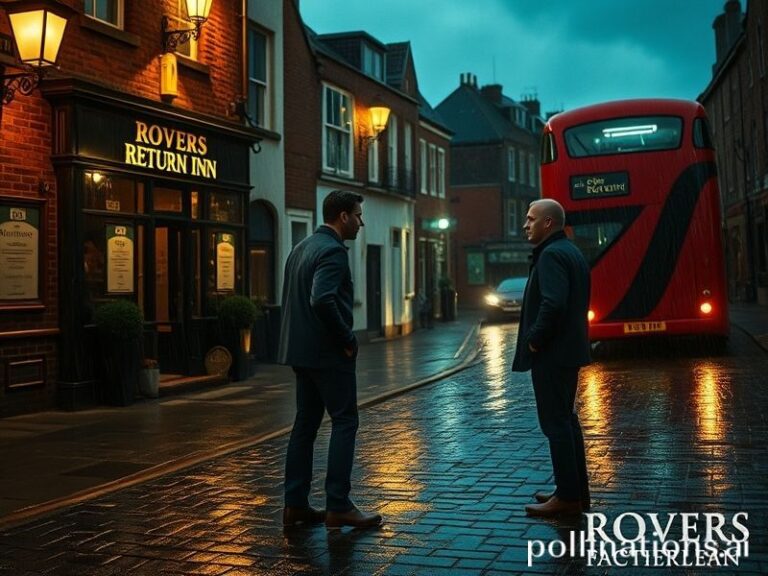Julia Roberts, Global Currency: How One Smile Became a Soft-Power Reserve Asset
MADRID—At 08:37 local time, while Spain’s commuter trains were packed with people pretending to scroll their phones instead of making eye contact, a photograph of Julia Roberts sipping iced coffee appeared on the front page of El País. The headline, translated loosely, read “America’s Smile Lands in Ibiza.” Somewhere in Lagos a WhatsApp group lit up with the same picture, captioned by a cousin who swears he once served her tapas. By noon in Tokyo, #JuliaInEurope was trending in katakana above a stock-market ticker showing the Nikkei had slipped 0.3 %. Coincidence? Ask the algorithm.
In the grand geopolitical circus, Roberts is less a movie star than a floating currency. Her grin has been de-pegged from mere Hollywood and re-valued against every national anxiety. When she steps onto a red carpet in Rome, Italian commentators compare the flashbulbs to Berlusconi-era paparazzi storms—nostalgia for a simpler species of scandal. Meanwhile, Korean beauty blogs freeze-frame her pores to determine whether forty-something skin can still qualify as “glass.” The answer, delivered via sponsored serum, is of course it can, provided the serum is bought now, before the next missile test.
The planet has quietly agreed that Roberts is the last universally acceptable American. Not because she’s harmless—she did, after all, play a corporate spy who weaponized charm in Duplicity—but because every culture can project its own fantasy onto that symmetrical face. In Brazil she’s the girl from Ipanema who learned to negotiate backend points. In India, multiplex owners schedule her 1990s rom-com marathons whenever the cricket team loses, a kind of cinematic comfort food less fattening than gulab jamun. German critics insist on seeing class critique in her toothy laugh; the French simply appreciate that her mouth is large enough to fit extra vowels.
What’s remarkable is how efficiently her brand travels without subtitles. The smile is a global dialect; the hair a renewable resource that has, since 1990, sustained an ecosystem of blow-dry bars stretching from Helsinki to Ho Chi Minh City. One could argue—if one were the sort who argues at embassy cocktail parties—that Roberts is the soft-power equivalent of an aircraft carrier, only with better legs and fewer war crimes. When Netflix drops a new limited series in 42 languages, the thumbnail is still her face because algorithms have discovered that even suspicion of a Julia appearance lowers the skip-intro rate by 11 %. World peace remains elusive, but viewer retention is a start.
Of course, the economics aren’t all charming. Each time she vacations in Greece, local GDP ticks up like a heart monitor on feta. The mayor of Mykonos once claimed, half-jokingly, that a single paparazzi photo of Roberts buying sandals prevented a sovereign default. Bond markets didn’t contradict him. Meanwhile, environmental NGOs calculate that the carbon footprint of her private jet is offset by the number of viewers who stay home streaming Erin Brockovich instead of driving to whatever counts as nightlife in their provincial despair. The equation is suspect, but so is most carbon math that involves private jets and hope.
There is, inevitably, a darker ledger. For every fan in Jakarta who learns English via Notting Hill bootlegs, there’s a sweatshop stitching “Pretty Woman” quote T-shirts for pennies. Roberts herself is aware; she donates, she produces documentaries about land rights, she signs open letters that powerful men pretend to skim. The cynic notes that philanthropy is the interest paid on the principal of fame, but even cynics like compound interest.
As dusk settles over whichever five-star balcony she currently occupies, satellite dishes pivot like sunflowers to catch the next unauthorized pixel. Somewhere below, a teenager in Tunis rehearses her laugh in the mirror, practicing for a future audition or escape. The world keeps spinning, teetering between rerun and revolution. And Julia Roberts—actress, asset, accidental alibi for late capitalism—keeps smiling, wide enough to hide the abyss, bright enough to make us forget we’re already falling.







